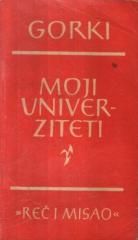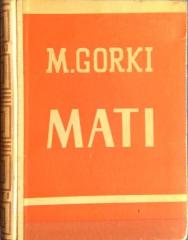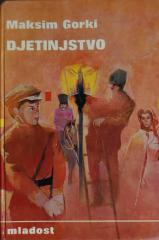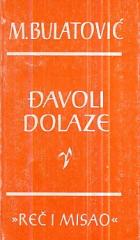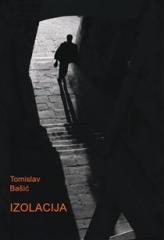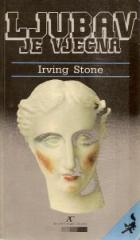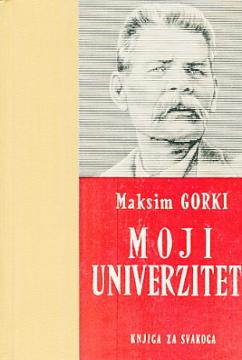
Moji univerziteti
Autobiografska trilogija - Detinjstvo, U svetu, Moji univerziteti. Gorki je, sudeći po nekim njegovim pismima i radivima, ovu triologiju zamislio već 1893. a napisao od 1913. do 1923. godine.
Moji univerziteti je treći deo autobiografske trilogije Maksima Gorkog, objavljene 1923. godine (srpsko izdanje 1962). Knjiga prati život mladog Alekseja Peškova (Gorkog) u periodu kada napušta rodni grad Nižnji Novgorod i odlazi u Kazan s nadom da će upisati univerzitet. Međutim, suočen s finansijskim poteškoćama i nemogućnošću formalnog obrazovanja, Aleksej shvata da su njegovi pravi „univerziteti“ životne lekcije stečene kroz rad, susrete s različitim ljudima i samostalno učenje.
U Kazanu, Aleksej radi razne fizičke poslove, od nosača do pekarskog pomoćnika, dok živi u siromašnim uslovima, okružen marginalcima, radnicima i intelektualcima. Knjiga opisuje njegovo upoznavanje s revolucionarnim idejama, književnošću i filozofijom, koje oblikuju njegov svetonazor. Ključni likovi, poput radnika, prosjaka i intelektualaca, uče ga o društvenim nepravdama, ali i o snazi ljudskog duha. Posebno važnu ulogu ima knjižara u kojoj Aleksej otkriva knjige, koje postaju njegov glavni izvor znanja.
Gorki istražuje teme siromaštva, potrage za smislom i sukoba između individualnih težnji i surove stvarnosti carističke Rusije. Knjiga je prožeta njegovom borbom protiv očaja, uključujući trenutak kada razmišlja o samoubistvu, ali i njegovom optimizmom i verom u ljudsku otpornost. Naslov „Moji univerziteti“ simbolično naglašava da pravo obrazovanje dolazi iz životnog iskustva, a ne samo iz formalnih institucija.
Knjiga je napisana u realističnom stilu, s bogatim opisima i dubokim psihološkim uvidima, što je čini snažnim prikazom ličnog sazrevanja i društvenih prilika tog doba.
Angeboten wird ein Exemplar
- Tragovi patine
